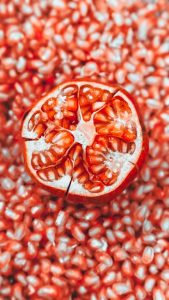New Cochrane Review: Iron Supplements Could Combat Anemia and Low Birth Weight

A recent update to a wide-ranging study review published in Cochrane aligns with earlier research suggesting that iron supplements taken during pregnancy can combat anemia in mothers. Additionally, the update emphasized iron’s possible role in staving off low infant birth weight.
According to Balchem, a supplier of ingredients such as iron, roughly a third of expectant mothers face anemia, and about 40% of these cases stem from an iron deficiency. This deficiency then restricts the mother’s ability to provide ample amounts of iron to their babies, consequently impacting the infants’ growth, cognitive function, and development.
This improved analysis further develops a review made in 2015 by utilizing a more recent scientific integrity and trustworthiness screening tool created by Cochrane Pregnancy and Childbirth.
An additional six new studies were considered, totaling 57 randomized, placebo-controlled trials that included 48,971 pregnant women from 27 different countries. The result of the review established that daily iron supplementation in pregnancy lowers the risk of maternal anemia and iron deficiency close to the due date compared to either placebo or no treatment.
The updated meta-analysis offered new insights on infant outcomes, displaying that pregnant women who consumed iron supplements probably had a decreased risk of giving birth to underweight babies.
Eric Ciappio, PhD, RD, a senior manager of nutrition science at Balchem, emphasized the importance of iron for women’s health, pointing out the necessity of iron supplements that are efficacious, safe, and manageable for pregnant women. According to him, “Choosing the right iron form is key in ensuring that mothers and babies reap the complete health advantages this mineral offers.”
The review authors from Cochrane advised that for iron supplementation success, the approach should consider accessibility and adherence.
Balchem identified gastrointestinal side effects as a major hindrance to adherence. They revealed that using ferrous sulfate supplements during pregnancy led to over three times more odds of GI distress compared to placebo, potentially discouraging users.
A meta-analysis concluded that Balchem’s Albion Minerals Ferrochel, a ferrous bisglycinate, enhanced hemoglobin status in pregnant women while lessening GI events by 64% when compared to other iron salts.
Ciappio explained that this superior effectiveness comes from the chelation process, where iron minerals are protected by amino acids from the body’s environment, thus promoting optimal absorption and optimal tolerability. He argued that by selecting the appropriate form of iron, brands can set themselves apart, crafting top-quality solutions enhancing maternal and infant health outcomes and effectively improving iron status while being gentle on the GI tract.


